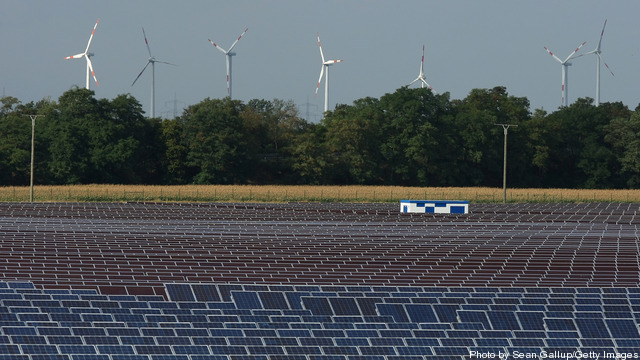With California’s cap and trade program suffering from legal challenges, decreasing auction revenue and general criticism of the program’s effectiveness
Cap and Trade
Four New California Cap And Trade Bills Fund Programs
By Ryan Baron | Best Best & Krieger LLPSign up and get Breaking Energy news in your inbox.
We will never sell or share your information without your consent. See our privacy policy.California Proposes Draft Amendments To California Cap-And-Trade Program
By Joshua Bledsoe, Jean-Philippe Brisson, Michael Dreibelbis, R. Andrew Westgate | Latham & Watkins LLPEnergy News Roundup: Renewable Energy Investment Surged in 2014, South Korea Puts Price on Carbon & $100 Oil Never Again
By Jared AndersonLed by solar power, global investment in renewable energy increased 16% in 2014 year-on-year. Solar and wind led the charge, but biofuels investment fell back a bit. “China was the clear national leader, with investment rising 32% to $90bn, with the US second, up 8% to $52bn, and Japan up 12% to $41bn. Canada, Brazil… Keep reading →
Double Whammy for State Fuel Suppliers
By R. Morgan Gilhuly, Chris Jensen | Barg Coffin Lewis & Trapp, LLPThe following article was originally published in the San Francisco Daily Journal on December 3, 2014. Copyright 2014 Daily Journal Corporation, reprinted with permission.
The California Air Resources Board (CARB) is poised to readopt the Low-Carbon Fuel Standard (LCFS) regulation in early 2015. With its readoption, CARB hopes to put to rest challenges that required a redo of the environmental analysis supporting the LCFS regulation. If all goes as planned, transportation fuel suppliers operating in California will face a regulatory environment in 2015 that is at once both more certain — with legal challenges to the LCFS largely resolved — and more daunting, as transportation fuels come under the “cap” on greenhouse gas emissions imposed by California’s cap-and-trade program.
I’m Still a Cockeyed Optimist When It Comes to Climate Change
By Seth Jaffe | Foley Hoag LLP - Environmental LawLast week, NRG Energy announced plans to reduce CO2 emissions 50% by 2030 and 90% by 2050. And this reduction is not from a 1990 or 2005 baseline; it is from 2014 emissions. NRG’s statement indicated that it had already reduced emissions by 40% since 2005. By my math, that means that the 2030 and 2050 reductions would be 70% and 94%, respectively, below 2005 emissions.
Capital Markets: Champions for Climate Change Mitigation
By Thomas H Stoner, Jr. and David Schimel, Ph.D.According to some, the power of greed shapes and drives our capital markets, and it is this greed that has led to the industrialization of the global society and ultimately to the buildup of excessive levels of Green House Gases (GHGs). Can the same capital markets save us from catastrophic climate change? Our answer to… Keep reading →
Senate Finance Committee Hearing on Energy Tax Policy Reforms
By Enerknol ResearchOn September 17, 2014, the Senate Committee on Finance held a hearing titled “Reforming America’s Outdated Energy Tax Code” to discuss possible reforms to the U.S. energy tax policy. Senate Finance Committee Chairman Sen. Ron Wyden (D-OR) underscored the need for predictable, level playing-field tax policy that puts renewables on the same footing as other… Keep reading →
Energy News Roundup: Global Shale Output Faces Water Stress, EPA Rule Could Boost Cap & Trade and US Power Prices Rise
By Jared AndersonA new study finds much of the world’s potentially recoverable shale resources are located in regions with limited water resources needed for advanced well completion technology like hydraulic fracturing. “Water risk is one of the most important, but underappreciated challenges when it comes to shale gas development. With 386 million people living on land above… Keep reading →
Climate Change Policy – The European Trading Scheme (ETS)
By Roman KilisekA plenary session on Tuesday at the 37th IAEE International Conference in New York – titled “Climate Change & Carbon Policies – International Lessons and Perspectives,” continued to draw huge crowds as experts on climate change and carbon policies highlighted different approaches to those issues in the US, China and Europe. As expected, the audience… Keep reading →
The 3rd National Climate Assessment (NCA) was released earlier this month, painting a frightening picture of the spiraling costs of climate disruption to America and highlighting the need to price carbon dioxide (CO2) emissions. While President Obama has pledged action and the electricity industry nervously awaits new EPA regulations for power plant emissions, the most appropriate… Keep reading →









